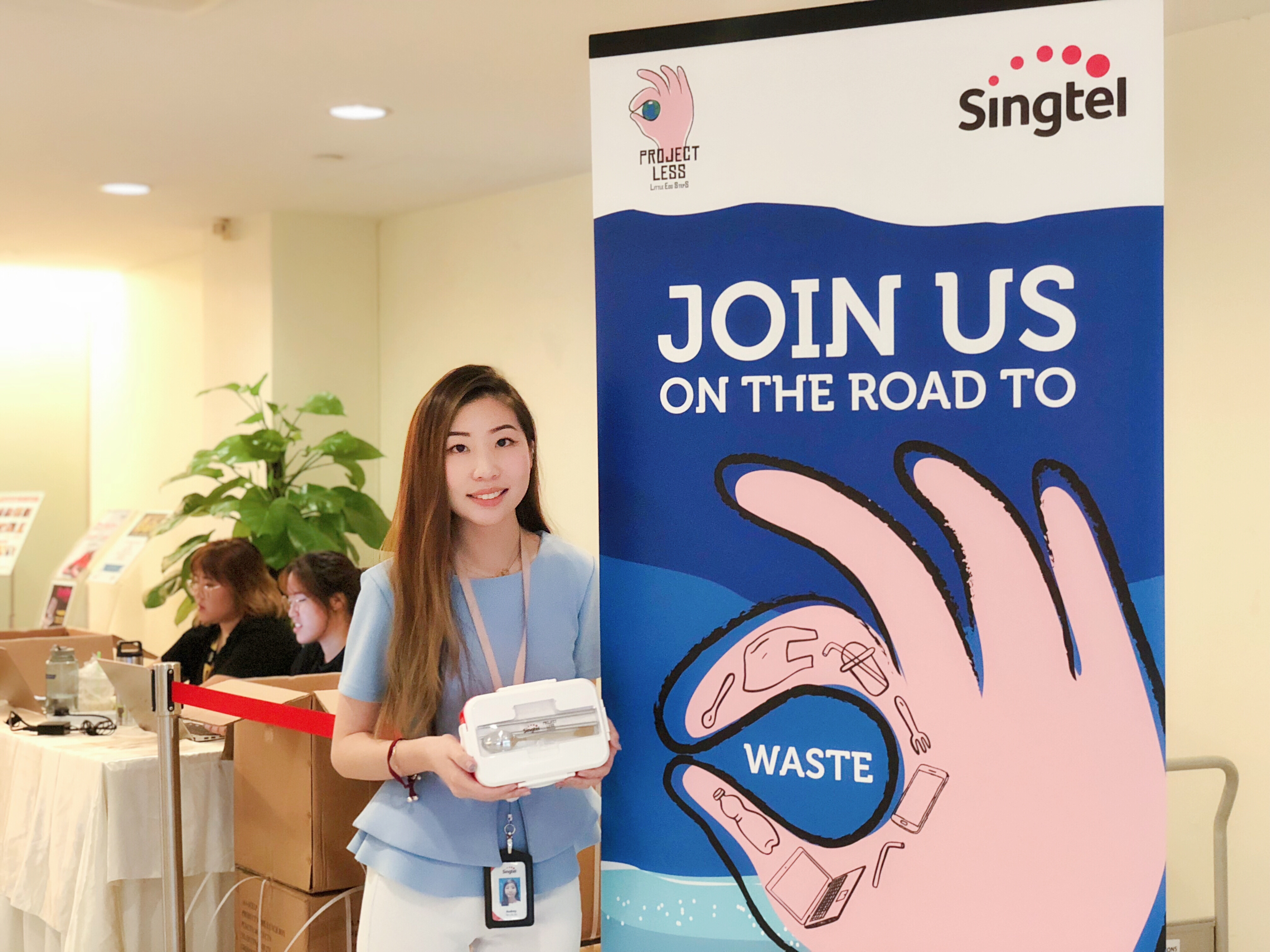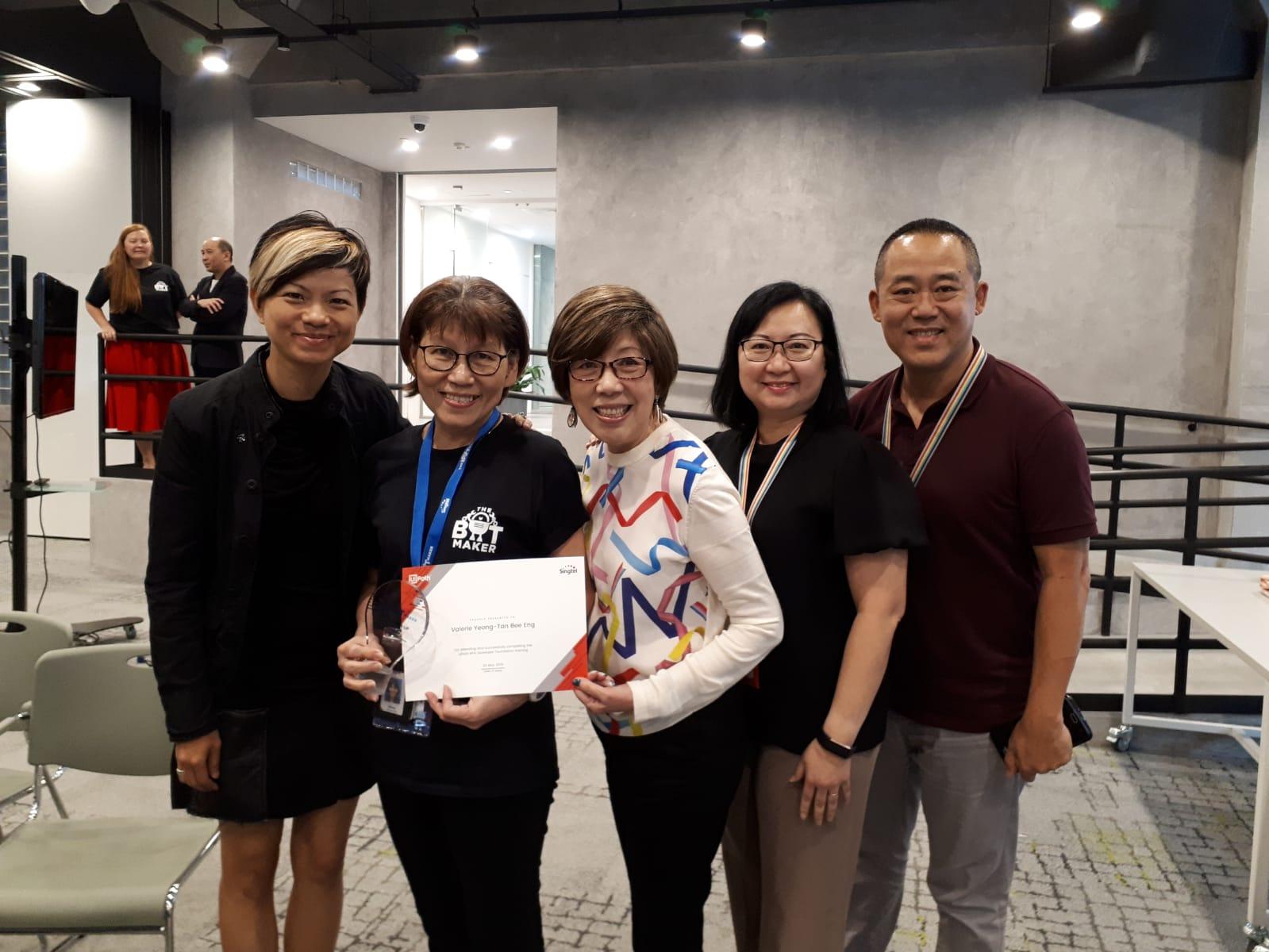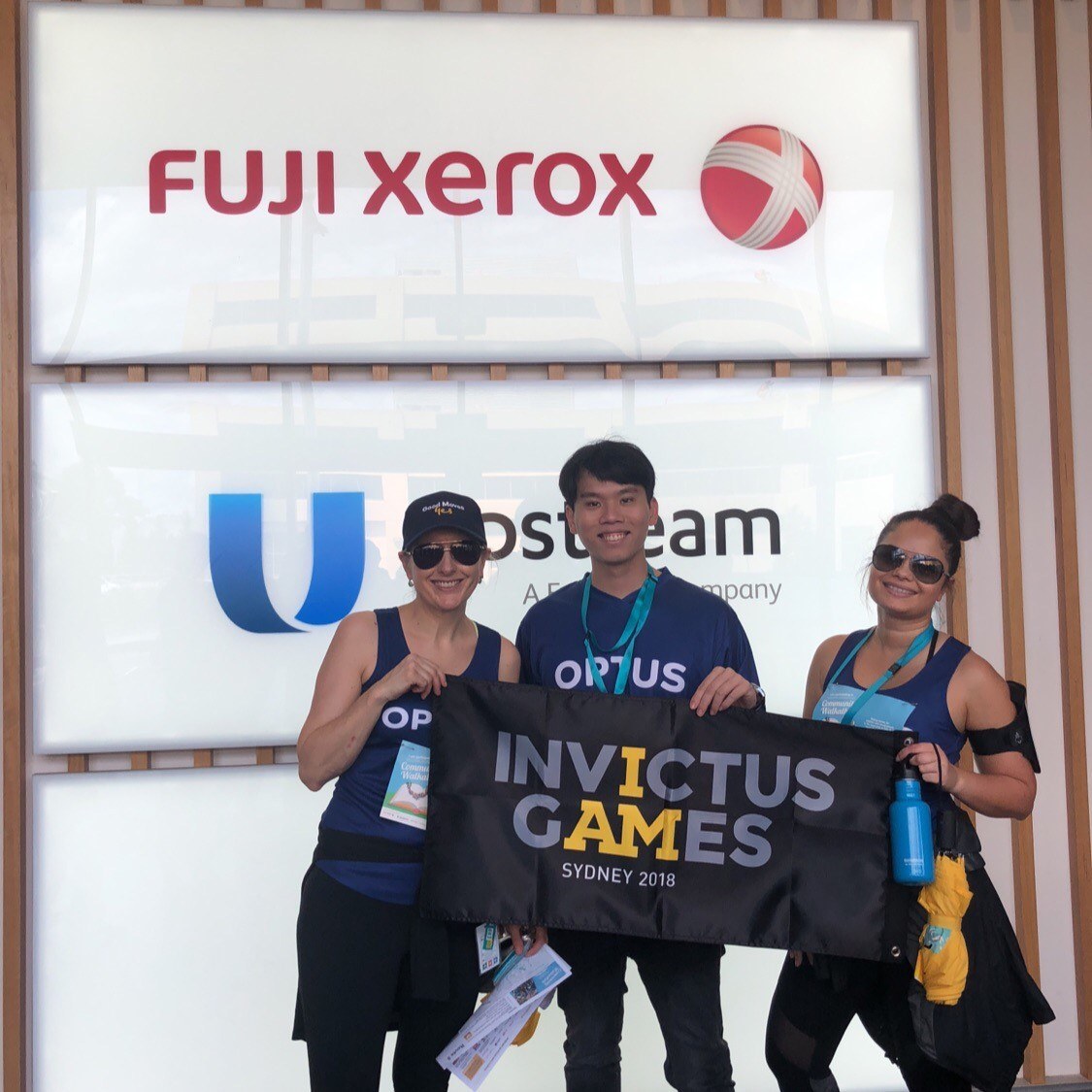Singtel Project LESS 2019 - Audrey Tan
Published 12 Jun 2019 by Lynn Loi

"We came up with the idea of giving away reusable lunchboxes for free to all employees to show that we are serious and committed to this cause of becoming a zero waste nation," Audrey Tan, Associate Group Sustainability.
Singtel Project LESS 2019
Audrey Tan, is an Associate with the Group Sustainability team at Singtel Group, who helped drive Project LESS (Little Eco StepS), Singtel's annual environmental campaign.
We had a chat with her to understand more about the campaign and how it has made a difference.
Q. Tell us about Project LESS.
A. We introduced Singtel’s annual environmental campaign Project LESS in 2011. This year, in support of Singapore’s Year Towards Zero Waste and National Environment Agency (NEA)’s Say YES to Waste Less campaign, Project LESS aims to reduce, and eventually eliminate, all single-plastic and Styrofoam with the support of our employees and canteen operators.
As we spend a lot of time in the office, it makes sense for us to think about what we can do as a company to engage our staff and educate them on habits at the workplace that we can change for the better.
Q. What makes this different from past environmental campaigns?
A. It is a good time for us to take a strong stand as a company to say that this is a cause that we're committed to and align with the nation’s push towards zero waste.
Singapore’s zero waste masterplan includes driving waste reduction and recycling in the three key waste streams – packaging waste, food waste and electrical and electronic waste (e-waste).
We have been driving paper and e-waste recycling since 2011 but packaging waste at the workplace is relatively new for us. We also received feedback from employees on why our canteen vendors are still using plastic and Styrofoam, so we wanted to see how we could tackle that.
Q. What are some examples of how Singtel took a strong stand on this topic?
A. Singtel launched the first phase of this campaign by targeting plastic straws and stirrers at offices with canteens and cafes. All straws and stirrers were removed from sight and no longer offered freely. To help our colleagues with this habit change, they can still get a straw or stirrer upon request.
Q. What is the impact that you wished to make with this campaign?
A. We want to encourage our colleagues to actively rethink our consumption and lifestyle habits. Why use a straw when we can drink straight from a glass? If our tea and coffee are already prepared by the drinks stall vendor, do we still need a stirrer?
There could be exceptions, such as mixed fresh fruit juices which need stirring due to separation. But the objective of this initiative is to encourage our people to look past the initial inconvenience that it may cause and become more conscious of the impact our actions have on the environment.
Q. How has the campaign been received by employees?
A. We’re glad that feedback from employees has been positive. They shared that they really liked what we are doing. We also worked with the stall owners on the messaging so they can help to remind our people that the reason they don't provide straws freely anymore is to do their part for the environment.
Q. What is the next phase of this campaign?
A. As a next step, we came up with the idea of giving away lunchboxes for free to all staff, to show that we are serious and committed to this cause. We prepared 13,000 reusable plastic lunchboxes that come with a set of utensils for our entire employee population in Singapore. This also allows us to support NEA’s Say YES to Waste Less campaign on such a large scale given our staff strength.
We want to empower our staff by giving them the support to help them make that behaviour change. At the end of the day, it's still up to them to take action to make a difference.
Q. How did you get started in Sustainability?
A. I studied New Media and Communications at NUS, and gained exposure to the topic of Sustainability in my last semester when I took a module on Corporate Social Responsibility. The module opened my eyes to this topic. After I graduated, I chanced upon this position with the Group Sustainability team at Singtel, and was so glad I was given this opportunity because it's a role that I find meaningful.
Q. What has been the most satisfying part of your role?
A. Over the last four years, I think the most satisfying part for me has always been the ability to reach out to so many colleagues at Singtel. I have a platform of sharing these messages to 13,000 people who have the potential of being an advocate, which can result in a multiplier effect to create greater change and impact.
It's difficult to see change overnight, so I hope that through what we do, more and more people will come on board over time, and even initiate such programmes from the ground up.
Q. After 4 years at Singtel, what is your take on the awareness around Sustainability?
A. We have a very strong culture here around volunteering, as we have been focused on the social portfolio in the past so our staff are very receptive to social related causes. Our annual Singtel Carnival, planned and executed entirely by our staff for children with special needs, is a testament to that.
There was a gap in the consciousness and passion for the environment that our management is keen to support and ensure our people are engaged in the topic.
We don't take a 'business as usual' approach and as a result, we are able to demonstrate that we care enough to push the messaging on how our people can do better through initiatives such as Project LESS.


